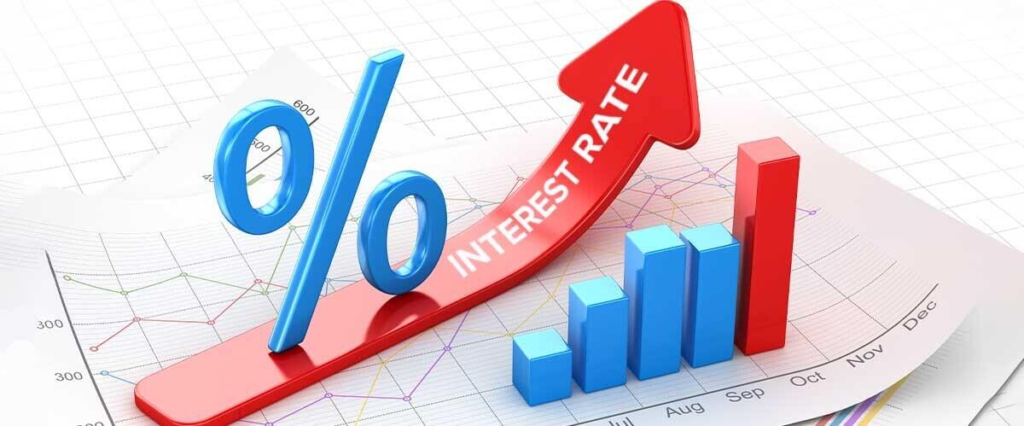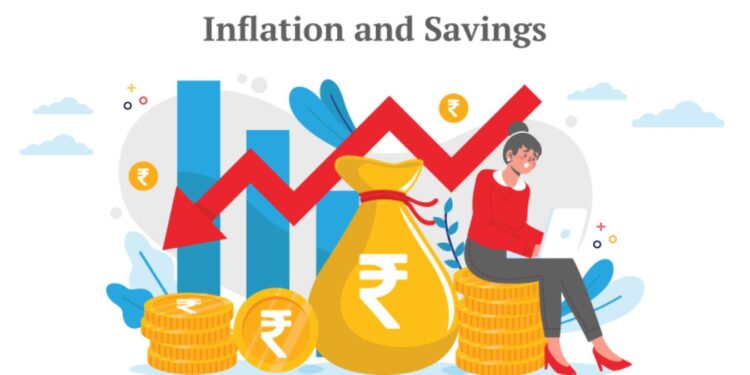Keyword: Effects of Inflation on National savings
Inflation can have a significant impact on national savings. National saving refers to the total amount saved by individuals, businesses, and the government in a country. Inflation is an increase in the price of goods and services over time, reducing the purchasing power of money. Let’s look at the impact of inflation on national savings.

Inflation Reduces the real value of Savings
One of the most important effects of inflation on national savings is the reduction in the real value of savings. When the prices of goods and services rise, the purchasing power of money falls. This means that even if people save the same amount of money, they can buy fewer goods and services than they did before inflation. As a result, the real value of their savings falls, leading to a reduction in national savings.
Inflation affects interest rates
Inflation also affects the interest rate offered on savings deposits. When inflation rises, the central bank raises interest rates to control inflation. Higher interest rates attract more savings as people are encouraged to save money for higher returns. However, when the interest rates offered are lower than the rate of inflation, the real value of savings falls, leading to a reduction in national savings.

Inflation could increase demand for some goods
Inflation can also increase demand for certain goods, such as gold, real estate, or stocks. These assets are considered an inflation hedge as their prices increase with inflation. As a result, people can transfer their savings from traditional savings accounts to these companies, leading to a reduction in national savings.
Inflation can reduce investments
Inflation can lead to lower investment because it creates uncertainty in the economy. Firms can delay investment decisions because of uncertainty about future prices, demand, and profitability. Lower investment leads to lower economic growth, which leads to a reduction in national savings.
Inflation can lead to a reduction in disposable income
Inflation can cause disposable income to fall, which can have a significant impact on national savings. When the prices of goods and services rise, people have to spend more on basic necessities, leaving less disposable income. This can lead to a reduction in national savings as people cannot save as much as they did before inflation.
Inflation can affect the value of government bonds
Inflation can also affect the value of government bonds, which are a common form of investment for many people. When inflation rises, government bonds fall in value and real investment returns fall. This can lead to a reduction in domestic savings as people may seek other forms of investment that offer higher returns.
Inflation may lead to lower foreign investment
Inflation can also reduce foreign investment, which can have a significant impact on domestic savings. Foreign investors may be less inclined to invest in a country with high inflation as this creates uncertainty and reduces the value of their investment. This can lead to a reduction in domestic savings as less foreign capital enters the country.
Inflation can reduce economic stability
Inflation can lead to reduced economic stability, which can have a significant impact on national savings. High inflation creates uncertainty in the economy, which can lead to lower consumer and business confidence. This can lead to lower investment and economic growth, which can have a negative impact on national savings.
Conclusion
Inflation can have a variety of effects on national savings. This can lead to a fall in the real value of savings, which affects interest rates, increases demand for certain goods, leads to lower investment, reduces disposable income, affects the value of government bonds, reduces foreign investment, and leads to lower economic profitability. Stability. Governments must take effective measures to control inflation and maintain economic stability to ensure national savings are not jeopardized.













